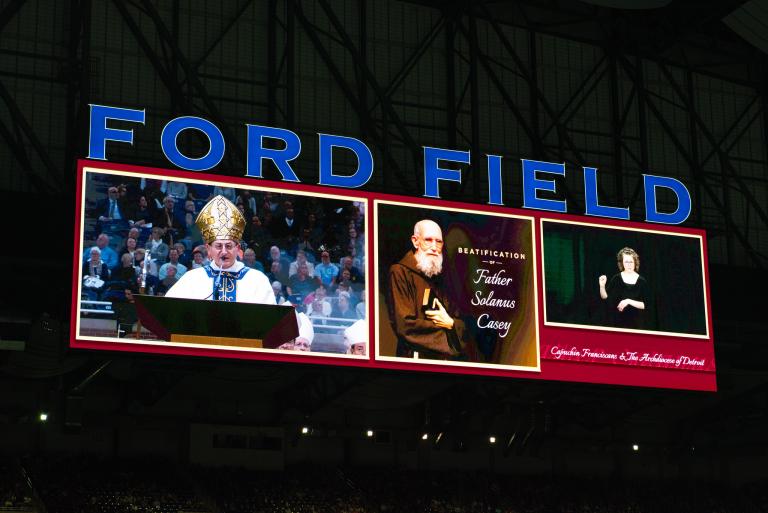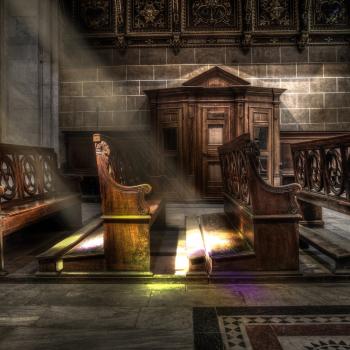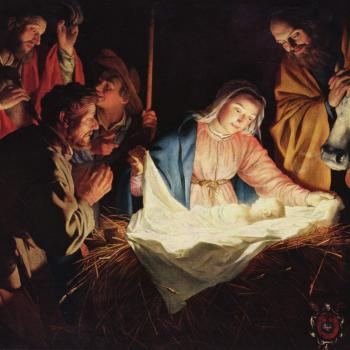
When I was in high school, I knew some teenagers who were sneaking around so they could drink or smoke pot, but I started my rebellion off with something even riskier than that.
One day, when nobody else was in the house, I booted up our computer, waited for our dial-up modem to stop screeching, and went back to a website I’d accidentally clicked on a few days before.
That started a lifelong pull for me. I’d stop looking at those websites for years sometimes, but I’d always go back eventually. Because it was just so different from anything I’d seen before.
I felt guilty about it at first. I knew I shouldn’t be looking at stuff like that. My church would not have been OK with it. I’d been warned to stay away from that sort of thing.
Over the years, though, and especially after my church showed its true colors, I didn’t feel as guilty about it.
Every now and then, I’d get this urge to go online and read about saints again. I did that for years.
I’d grab some quiet time and read for hours about all these people who’d been canonized by the Catholic church. And I’d always get to the point while reading that I’d think, “I really wish this was true. It’s too bad it isn’t.”
Then I’d get all bummed out and get off the computer.
But I just couldn’t get those stories out of my head, so I kept going back.
I’d grown up with stories about Anabaptist martyrs, so I was used to looking to the lives as an example. It wasn’t much of a stretch for me to connect with saints in the Catholic church.
I have a long-standing interest in saints, going back to those first sneaky attempts to read about them in high school.
While I was in RCIA, two men were beatified: Bl. Stanley Rother and Bl. Solanus Casey.
Today is the first feast day for Bl. Solanus Casey, and Bl. Stanley Rother’s first feast day was two days ago.
I’m especially interested in these men for a few reasons. First, because I’m interested in the canonization process and this is my first opportunity to get a closer look at that as it happens. Also, because Oklahoma and Michigan were homes to each man, and I’ve lived in both places too, so they feel like neighbors to me. But more than anything, I’m interested in what their lives have in common.
I won’t provide a biography here for either of them, though I think everyone should go read up on them. (See the links, above.)
What I’m most interested in are the nearly closed doors they both experienced.
They both felt called, and they both struggled with the academic aspects of seminary. What does it feel like to know you’ve been called, but you don’t match up to expectations?
Both men were eventually ordained, though Solanus Casey was ordained a simplex priest, and wasn’t allowed to hear confessions or preach doctrinal sermons.
When I listen to interviews of people who knew these men, and when I read accounts of their lives, the one thing that strikes me is neither of them turned people away. Their doors were always open.
Maybe when you’ve been faced with a closed door, you’re more willing to keep the door open for others.
These men aren’t on the road to canonization because they were academic overacheivers. They both struggled to meet the academic demands on them. To be clear, neither man was unintelligent. There’s a different between intelligence and academic knowledge.
And, anyway, we already know that even if we have “all knowledge,” we’re nothing if we don’t have love.
These men had love. Did they ever have love.
I’m not anti-education. At all. I highly value education. We need well-educated people. But we don’t need only those people.
Sometimes the person best suited for a role doesn’t look like they’d fit that role.
I find encouragement in these lives. I don’t exactly fit the mold, and I worry sometimes about whether or not I can do whatever I’m here to do. But I think both men were so effective because they didn’t exactly fit the mold.
Maybe you don’t fit neatly either, and maybe that’s a gift. Maybe there are some doors only you can keep open.
I’m not sitting here, sneaking around with the saints, wishing this all could be true anymore. I believe it is true.
And how great is it for all of us who don’t always fit to know we have friends who lived that and were able to have such an impact, not in spite of their differentness, but maybe because of it?











